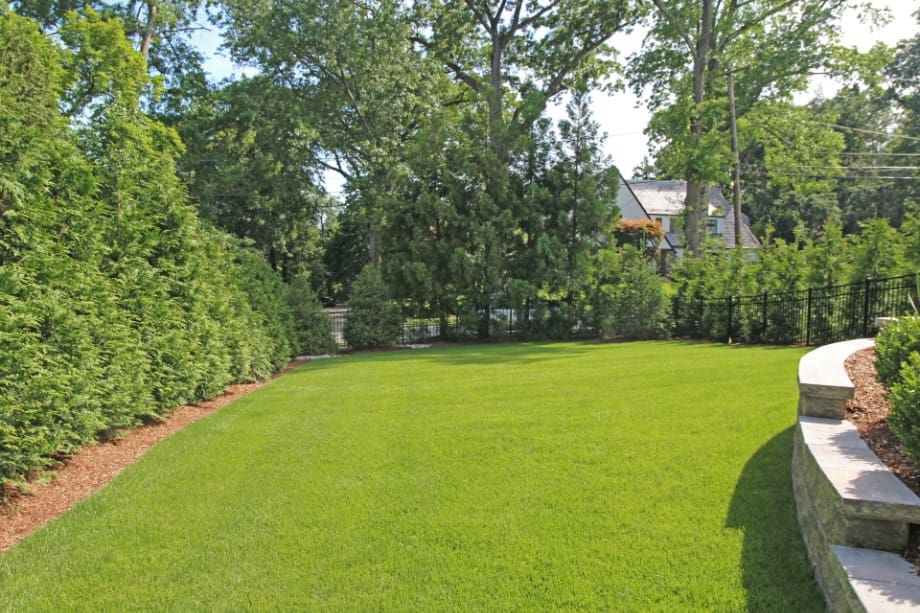Lawn Sulfur has many benefits for your grass. We’ll tell you more, and how it works.
You’ve heard lawn sulfur application is a great way to promote a healthy lawn, but how does it work and what do you need to consider? We will unlock the ABCs of sulfur for you here.
A beautiful lawn is a lot of work, but with a lawn care professional’s help, you can have one of the best Bergen County lawns on the block! A great lawn takes preparation, care, and proper treatment in order to fight off weeds, pests, and weather conditions. Partnering with Borst Landscape & Design means you can have confidence that your lawn is in great hands.
Get in touch with Borst to learn more about our comprehensive organic lawn care services! Call (201) 785-9400 or get in touch online!
Sulfur: a secondary nutrient for lawn health
Sulfur is among the secondary nutrients that help promote healthy grass growth. The three primary nutrients for a healthy lawn are nitrogen, phosphorus and potassium, but secondary nutrients like sulfur are also essential.
If the grass in your lawn has a sulfur deficiency, you may see signs of:
- Yellowing
- Slowed growth
- Thin blades
Grasses planted in sandy soils are most likely to show signs of sulfur deficiency.
On the other hand, lawns with a good amount of sulfur have strong grass with dense blades and good growth. Lawn sulfur encourages lush green grass with healthy roots, which is more successful at fighting weeds and disease.
Lawn sulfur for pH adjustment
Lawn sulfur is often used in lawn care for adjusting soil pH. High-pH, overly alkaline soil affects the availability of many nutrients that grasses need to be healthy and lush.
If the soil pH is too alkaline, the roots of the grass will not be able to absorb nutrients, even if there are good amounts present in the soil. When lawn sulfur lowers pH to bring grass into the acidic pH it prefers, the sulfur also works to unlock inaccessible nutrients from the soil, making them available so grass roots can absorb them.
How does it work? When sulfur is added to soil, soil bacteria convert the sulfur to sulfuric acid. This is a slow, natural biological process. Think of it as working with nature.
Things to consider about lawn sulfur application
Before attempting to lower the soil pH or correct nutrient deficiencies with lawn sulfur, there are considerations to take so you don’t do any serious damage to the grass.
Firstly, make sure you are following the guidance from a soil test. Don’t assume that a lawn sulfur deficiency is a problem without having all the information. The nutrients in your soil can change over the year. An inexpensive soil test can take all the guesswork out of applying the correct nutrients your lawn will need.
The amount of lawn sulfur needed for your grass depends on factors including your soil type and pH, so follow your soil test results.
Also, correct any drainage problems in your yard before using lawn sulfur. This will help you avoid salt buildup from the lawn sulfur application, which can burn grass roots.
Work with Borst for grass health
Applying lawn sulfur activates a slow-working, natural biological process. It takes time but works to support your grass in the long term by promoting robust, healthy growth. Lawn sulfur is an excellent element of a comprehensive lawn care program.
Borst Landscape & Design specializes in providing Bergen County, NJ residents with lawn maintenance and lawn care services that are safer, natural, and dependable. From regular lawn mowing to fertilization, pruning, and spring & fall clean-ups, we can do it all.
Call (201) 785-9400 or get in touch online!

